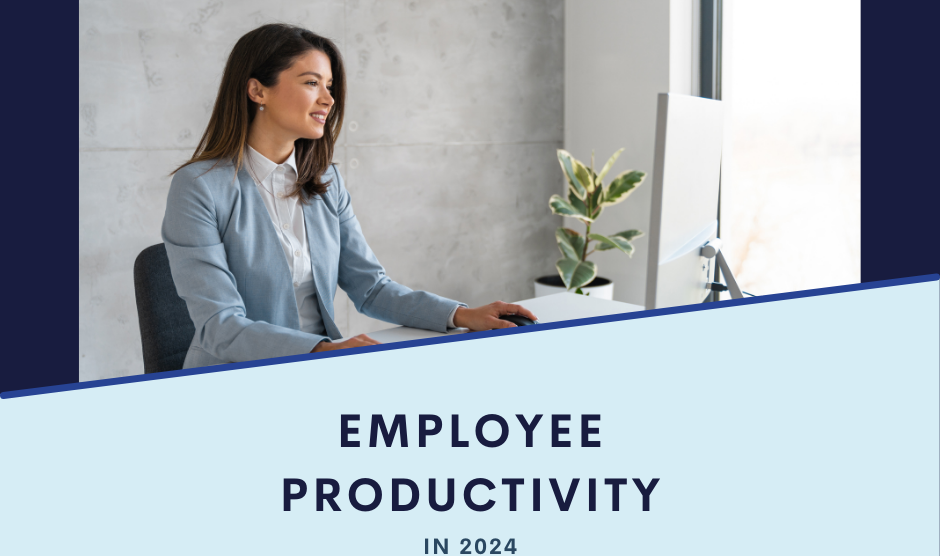How Flexible Workspaces Drive Employee Productivity in 2024
The workplace continues to evolve in 2024, and flexible workspaces are leading the way. These adaptable environments not only support changing business needs but also significantly boost employee productivity. By fostering collaboration, reducing stress, and catering to diverse work styles, flexible offices help employees perform at their best.
Let’s explore how flexible workspaces enhance productivity and why they are becoming indispensable for modern businesses.
Why Productivity is Crucial in 2024
Productivity is a key driver of business success, influencing profitability and employee satisfaction. According to Gallup, companies with engaged employees achieve a 23% increase in profitability. However, traditional office environments often hinder productivity by failing to adapt to diverse work preferences.
Flexible workspaces, like those offered by DBH Serviced Office, address this issue by creating environments tailored to individual and team needs, unlocking greater potential and efficiency.
How Flexible Workspaces Enhance Employee Productivity
1. Customized Work Environments
Flexible workspaces provide various zones to match tasks and work styles:
- Private offices for concentration.
- Coworking spaces for collaboration.
- Breakout areas for informal discussions or relaxation.
This adaptability ensures employees work in settings that maximize focus and performance. Research shows that productivity increases by 17% when workspaces align with employee needs.
2. Better Collaboration and Innovation
Collaboration is key to driving creativity and problem-solving. Flexible offices foster teamwork with:
- Open layouts for brainstorming.
- Modular furniture for group activities.
- Tech-enabled meeting rooms for seamless communication.
A report by Harvard Business Review found that collaborative workplaces deliver 5x better performance outcomes, making these environments essential for innovation-driven teams.
3. Stress Reduction and Wellness Support
Workplace stress is a major barrier to productivity. Flexible offices counter this with:
- Wellness features like gyms and ergonomic furniture.
- Flexible schedules and hot-desking options.
- Natural lighting and quiet zones for relaxation.
Such environments enhance mental well-being, boosting focus and engagement. The American Psychological Association (APA) estimates that reducing workplace stress can save businesses billions annually in lost productivity.
4. Technology for Seamless Work
Modern flexible offices leverage advanced technology, including:
- High-speed internet for uninterrupted workflows.
- Smart tools like video conferencing systems.
- IoT-enabled spaces for comfort and energy efficiency.
These innovations save time and improve task efficiency. A 2023 Cisco study found that tech-enabled workplaces increase productivity by 35%.
5. Adaptation to Hybrid Work Models
With hybrid work becoming the norm, flexible offices are ideal for balancing in-person and remote work needs. Features such as hot-desking, on-demand meeting rooms, and virtual office services ensure employees remain connected and productive, regardless of location.
Why Flexible Workspaces Are a Smart Investment
Cost Savings
Flexible offices reduce overhead through pay-as-you-use models, saving costs on utilities, maintenance, and real estate.
Employee Retention
Providing a better work environment increases employee satisfaction, lowering turnover rates.
What’s Next for Flexible Workspaces?
The future of workspaces includes trends like:
- Sustainability with green-certified designs.
- Personalization through AI-driven workspace setups.
- Health-focused designs that integrate natural elements and wellness features.
At DBH Serviced Office, we are constantly innovating to meet these demands, ensuring our serviced offices remain the gold standard in flexible workspace solutions.
Flexible workspaces are redefining how businesses approach productivity. They foster collaboration, reduce stress, and adapt to the modern hybrid workforce—creating environments where employees and businesses thrive.
Ready to transform your office into a productivity powerhouse? Explore your options with DBH Serviced Office and discover the workspace that works for you.
Continue Reading
Curious about more ways to optimize your workspace? Check out the latest insights on the DBH Serviced Office Blog for expert advice, industry trends, and success stories that inspire!

Do not hesitate to contact us
Get in touch, if you have any question


